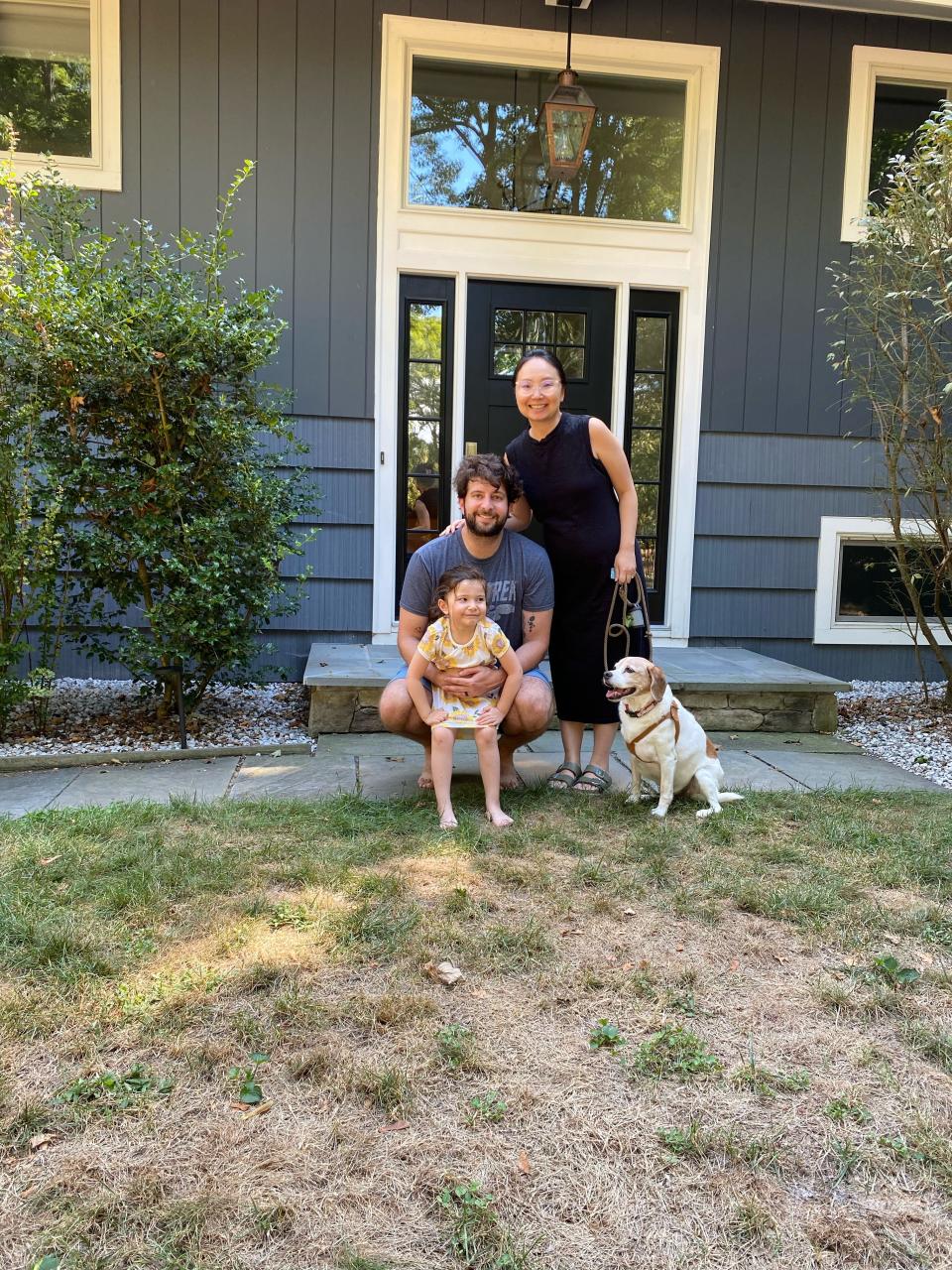Should you buy a house or rent? What to know about ‘savage’ housing market before you decide
In just six months, Sam Brinton, a real estate agent in Salt Lake City, has witnessed a complete reversal in buyer sentiment.
“It’s a night and day difference,” he says.
Last year, even as the pandemic housing market pushed home prices ever higher and bidding wars were an expected part of the homebuying process, buyers were motivated enough to stay in the game.
The last few months have been the opposite.

"They are confused and hesitant now. Many buyers are sitting on the sidelines because the market has cooled down so much,” says Brinton.
Exclusive : Has the pandemic housing market come to an end? Rising inventory, price drops show shift
Rents: Good news for NYC renters? This is where you can find more options
The cooling housing market has further fueled the demand for rental units, driving rental prices even higher.
Why are people thinking about renting?
It’s been a nerve-wracking time for homebuyers grappling with still-soaring prices for existing homes despite rising inventory, falling home sales and volatile interest rates.
The average 30-year fixed mortgage rate went from 3.22% on Jan. 6 to 5.55% on Aug. 25, according to Freddie Mac.
Existing home sales fell for the sixth consecutive month with sales down 6% from June and 20% from one year ago.
The wait-and-watch approach by buyers is prompting a high share of home sellers to drop their asking price. More than 15% of home sellers dropped their asking price in the 97 largest U.S. metropolitan areas, according to a report from Redfin.
In pandemic boomtowns, it was much more drastic.
In Salt Lake City, for instance, 56% of homes for sale had a price drop in July. Nearly 70% of homes for sale in Boise, Idaho, had a price drop in July, the highest share of the 97 metros.
“Last year, the market forces pushed you into a home and pushed you into doing it sooner than you wanted . It was like ‘now, now, now high, high, high.,” says Brinton. “Whereas now the market forces are pulling you away. Even someone who's ready to go is kind of dragging their feet.”
The median existing home sales price climbed 11% from one year ago to $403,800 in July, marking 125 consecutive months of year-over-year increases. However, it was down by $10,000 from June's record high of $413, 800, according to National Association of Realtors data.
Should you buy or rent a home?
The median monthly asking rent in the U.S. surpassed $2,000 for the first time in May, rising 15% year-over-year to a record high of $2,002.

Asking rents were up over 30% in Cincinnati, Seattle, and Nashville, Tennessee, and nearly 50% in Austin, Texas.
In July, the national median asking rent was up 14% year-over-year to $2,032.
“Rent prices have gone up in the last 18 months, much faster than any other time in recent history,” says housing analyst Logan Mohtashami. "So the question is, ‘Can you tolerate the rent increases on a yearly basis?‘”
With a home purchase, even at a higher interest rate, a buyer is opting for a fixed payment plan, says Mohtashami. And if mortgage rates go down next year, homebuyers have the option to refinance.

“It's a savagely unhealthy housing market in the sense that mortgage rates have gone up so much and home prices are still rising,” he says. “So there's a lot of people who just simply can't afford to buy a house after this year, so they're going to be renting no matter what.”
Brinton says a client who is relocating from Maine to Salt Lake City spent a few weeks looking for a home before deciding to explore the rental market.
A few weeks later, she was back, wanting to resume her house hunting.
“She realized that (renting) was an expensive option,” says Brinton. “Rental prices are so high here and they are only going higher as more and more people have dropped out due to interest rates.”
While nationally it is still more expensive in terms of monthly payments (assuming a 5% down payment) to buy ($2,316) than rent ($2,016), in some markets, such as Fort Lauderdale and Miami in Florida, Cincinnati, Detroit, and Boston, it is now cheaper to buy a home than to rent.
The downside of waiting to buy a home is that you'll have to sign a lease if you need a place to stay and it’s not a second home, says Daryl Fairweather, chief economist at Redfin.
“And that lease is going to be expensive. A lot of these would-be homebuyers are turning to the rental market and that's sustaining demand on the rental side,” she says. “Even as people's budgets are pinched by higher inflation and higher interest rates.”
Are we in a housing recession?
For new home construction, yes, according to the experts. Rising mortgage rates and higher costs of construction are causing a “housing recession,” says Robert Dietz, the chief economist at the National Home Builders Association.
Builder confidence fell for eight straight months in August as elevated interest rates, ongoing supply chain problems and high home prices continue to exacerbate housing affordability challenges, according to a association's survey.
Nearly 1 in 5 homebuilders reported reducing prices by roughly 5% in the past month to increase sales or limit cancellations.
New home sales were nearly 30% lower in July compared with July of last year.
For existing homes, including single-family homes, townhomes, condominiums, and co-ops, sales fell 20% year-over-year in July, according to the National Association of Realtors.
While all four major U.S. regions experienced year-over-year sales declines, the northeast region saw an uptick in month-over-month sales.
Buyers also have more to choose from, with unsold inventory now at a 3.3-month supply, up from 3 months in June and 2.5 months in June 2021. Months’ supply refers to the number of months it would take for the current inventory of homes on the market to sell given the current sales pace. Historically, six months of supply is associated with moderate price appreciation, and a lower level of months’ supply tends to push prices up more rapidly.
“The national inventory level is still below 2019 levels, and so another wave of lowered mortgage rates could keep the home price growth in the high single digits,” says Mohtashami.
If you plan on living in your new home for two years or less, it is better to rent, says Lawrence Yun, the chief economist for the National Association of Realtors. If it’s more than five, years, it makes sense to buy.
“If you financially qualify for a house in the neighborhood you want to live in, it’s a good idea to buy,” he says. “The chance of a price decline is probably minimal, but if it does occur, it'll be only for a short duration. But if you don't buy, you are just paying rent and then higher rent then further higher rent with each passing year and one could potentially miss out on the price gains.”
Buying a home? Plan for 'a long game'
Scott Golub and his wife, Annmarie, recently confronted that decision.
The couple is moving from their apartment in Queens to their new home in Pleasantville, New York, this week.

After having spent more than a year looking for homes in the area, and losing out on multiple homes, the couple, who has a 4-year-old daughter and another child on the way, found a home that checked that was close to schools, easily accessible to the downtown, and had a good-sized yard.
After being outbid more than three times over the past year, they made an all-cash offer, with help from Annmarie’s parents. The couple paid $940,000, or $90,000 above the asking price for the 2,300-square-foot home listed at $850,000.
“The house hit every box we wanted,” he says. “We didn't want to take a chance on losing out on it,” he says.
Natalia Wixom, Golub's agent says the couple had done their homework and were confident buyers.
In the coming months, with rising inventory, sellers will have to prepare homes better and price them more carefully, says Wixom.
Asked if he was worried about the softening housing market, Golub said it wasn't a concern.
“Obviously, we don't want to lose value on the house, but this is a house that we plan on being 30 years plus,” he says. “So it’s kind of a long game.”
Swapna Venugopal Ramaswamy is a housing and economy correspondent for USA TODAY. You can follow her on Twitter @SwapnaVenugopal and sign up for our Daily Money newsletter here.
This article originally appeared on USA TODAY: Buy or rent a house in 2022? Know this about ‘savage’ housing market

 money
money 